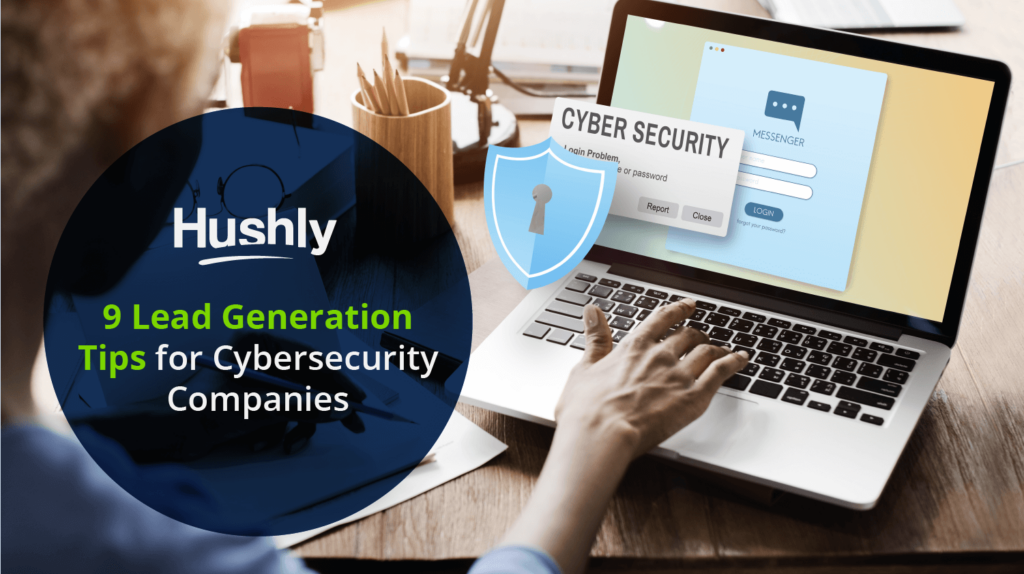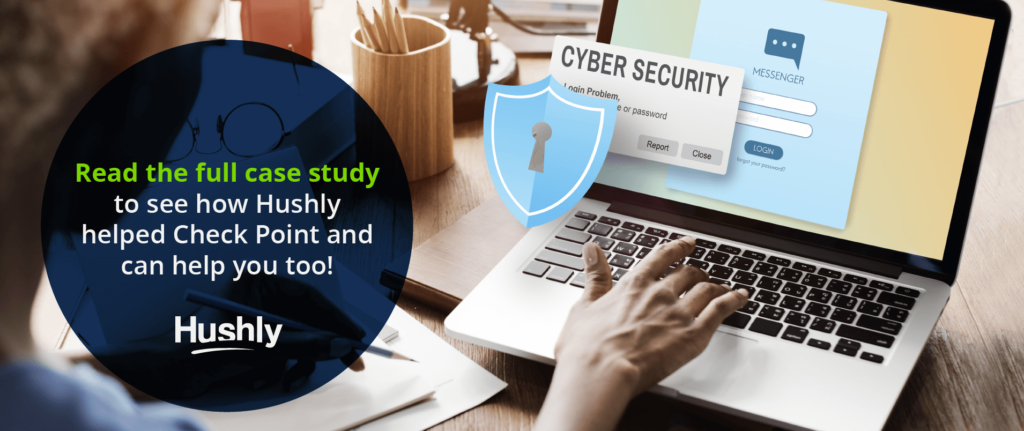Cybersecurity experts now’s your time to shine.
COVID-19 restrictions have forced businesses around the world to accelerate their digital transformations.
In many ways, businesses had to transform their operations in ways they’d never anticipated – like switching to remote work.
For many industries, remote business poses a huge security risk. Unregistered devices, email communication, remote logins, payment processing – almost every interaction poses a security risk.
One in five companies didn’t prioritize cybersecurity improvement during the pandemic either. Many paid a hefty price for it, too, because attacks have increased by 56%.
As a cybersecurity company, you have a huge opportunity to make your case and carve a niche in your market.
However, cybersecurity lead generation isn’t easy. You already face stiff competition in a market that’s tough to maneuver. Use these strategies and tips to solidify your online presence and build trust.

9 Strategies and Tips for Improving Cybersecurity Lead Generation and Quality
Cybersecurity lead generation hinges on establishing trust. Organizations already tend to neglect cybersecurity because they don’t believe it’s necessary until an attack strikes. Companies need to know you have their best interests in mind and aren’t just out to take their money.
1. It’s All About Demand Generation
Frankly, businesses don’t think they need cybersecurity. It’s no surprise that almost a third of IT professionals say their organization neglects proper safeguards.
Before even thinking of cybersecurity lead generation, focus on demand, and prospecting.
You have a unique opportunity in that cybersecurity is a frequent news topic. Every day you could run a Google search and find a news story about a cyberattack, ransomware, or malware to boost demand generation.
News stories covering attacks, what went wrong, the exploited loopholes, and solutions are perfect for your blog. Organize them by vertical or industry to encourage engagement.
2. Put a Heavy Emphasis on Educating Leads and Prospects
70% of IT workers say hackers have changed their tactics since the pandemic hit. Pandemic or not, hackers change their tactics all the time.
Leads and prospects need educational and engaging content.
Once you boost demand with current events and news stories, create cybersecurity lead generation content that heavily focuses on solutions. Give away your knowledge. Let organizations know what they can do to improve their security and prevent attacks.
3. Find Ways to Set Your Business Apart in Your Cyber Security Marketing Campaigns
Cybersecurity is a pretty saturated market, and new companies arise every day. Even if you’re capable of providing security services and software to every industry, you shouldn’t market to everyone.
Marketing to every sector forces you to create general content. Two-thirds of B2B buyers say companies give them way too much generic and useless content already.
Instead, analyze your competition and see which industries they target. Look for a few low-competition verticals to dive head-first into blogs, eBooks, videos, and other marketing content. This will help you develop your own cybersecurity target market.
4. Develop an Account-Based Marketing Strategy
Once you decide on a few key industries or verticals, you could take it a step further by implementing an account-based marketing strategy.
Try to figure out which security companies your target accounts already use and what you could do to win them over.
5. Case Studies are Your Best Friend
Relevancy is key in cybersecurity marketing material. Buyers need to read content that makes them think, “Hey, that could be me.” Case studies make your content hit close to home.
While you shouldn’t capitalize on a client’s hack to drive fear in your audience, you can clearly explain which loopholes hackers exploited (or could have exploited) and how your security products solved it.
6. Video and Multimedia are a Must
Cybersecurity isn’t always the most thrilling industry. However, it does offer a ton of potential.
Videos are necessary for boosting engagement and lead generation in your cybersecurity marketing material.
Get creative. Cisco ran a successful storytelling video marketing campaign that felt more like a Netflix series than a cybersecurity marketing campaign.
7. Build Connections with Email Marketing
Of course, social media is important too, but email offers the intimacy cybersecurity lead generation requires.
Personalized and conversational email marketing campaigns help you build a personal connection with your prospects and leads. Alert subscribers when a new hack occurs and what happened – especially if it’s in their industry.
The WordFence security plugin, for example, sends email updates explaining what happened during the latest attack and how to stay safe.
8. Digital Events and Webinars are Your Secret Weapon
Most buyers can’t convince their higherups to buy your product right away, but they might have more tools to do some convincing after a webinar.
Cybersecurity is a perfect industry for webinars because you have the expertise that can truly benefit people. People can participate in your digital event and use your tips or risk assessments right away. They’ll also walk away knowing their security limitations without signing up for your service.
9. Transparency is Key
Most people expect marketers to bend the truth. They might accept it for things like email marketing or sales, but they certainly won’t for cybersecurity.
“If they’re lying about this, what else could they be lying about?”
Transparency is critical. Don’t try to hide your flaws or limitations – make leads aware of them as needed and explain what you do when mistakes happen.
Power Your Cybersecurity Lead Generation and Boost Lead Quality with AI
AI-driven content engagement tools can help you build an account-based marketing strategy. An ABM strategy allows you to laser-focus on certain content niches so you can establish thought leadership and authority.
An AI engine adds hyper-personalization to your site – like Netflix or Spotify. When someone visits your page, AI can detect their intent, industry, or even company based on their behavior to offer personalized recommendations.
That’s why Check Point software started generating almost 93% more leads and improved lead quality by 54% after they implemented the Hushly AI content engagement tool.
Read the full case study to see how Hushly helped Check Point and can help you too!




